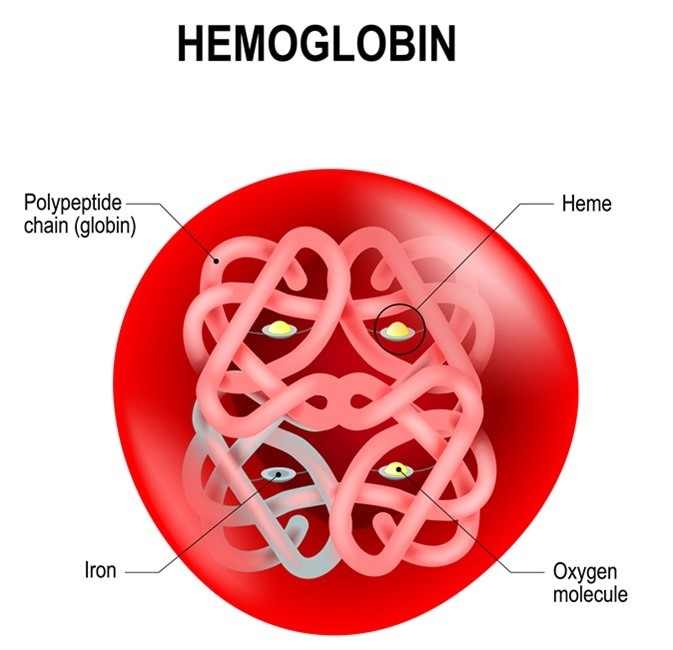An adult with arthritis has been receiving treatment with naproxen and now reports ongoing stomach pain, increasing weakness, and fatigue. Which laboratory test should the nurse monitor?
Creatinine
Serum calcium
Erythrocyte sedimentation rate
Hemoglobin
The Correct Answer is D
Choice A: Creatinine is not a relevant laboratory test for the nurse to monitor, as this reflects renal function and is not affected by naproxen or arthritis. This is a distractor choice.
Choice B: Serum calcium is not a pertinent laboratory test for the nurse to monitor, as this indicates bone metabolism and is not related to naproxen or arthritis. This is another distractor choice.
Choice C: Erythrocyte sedimentation rate is not an important laboratory test for the nurse to monitor, as this measures inflammation and is not influenced by naproxen or stomach pain. This is another distractor choice.
Choice D: Hemoglobin is an essential laboratory test for the nurse to monitor, as this shows blood oxygen-carrying capacity and can be reduced by naproxen-induced gastrointestinal bleeding, which can cause stomach pain, weakness, and fatigue. Therefore, this is the correct choice.

Nursing Test Bank
Naxlex Comprehensive Predictor Exams
Related Questions
Correct Answer is C
Explanation
Choice A: Measuring urine output daily is not a specific statement for the nurse to include, as this is a general recommendation for all clients with urinary catheters and does not address the potential complications of a suprapubic catheter. This is a distractor choice.
Choice B: Observing urine color and clarity is not a relevant statement for the nurse to include, as this does not reflect the condition of the suprapubic catheter or its insertion site. This is another distractor choice.
Choice C: Inspecting genital area for signs of infection is an important statement for the nurse to include, as this can help detect and prevent urinary tract infection, peritonitis, or abscess formation, which are common risks associated with suprapubic catheters. Therefore, this is the correct choice.
Choice D: Palpating flank area for tenderness is not a necessary statement for the nurse to include, as this is not an accurate or reliable method to assess for kidney function or damage, which are unlikely to occur with a suprapubic catheter. This is another distractor choice.
Correct Answer is C
Explanation
Choice C is correct because pushing the undiluted Dextrose slowly through the currently infusing IV is the best way to administer the medication for a client with insulin shock. Insulin shock is a condition in which the blood glucose level drops too low due to excess insulin or insufficient food intake. This can cause symptoms such as confusion, sweating, tremors, or loss of consciousness. The nurse should administer 50% Dextrose IV as a bolus injection to raise the blood glucose level quickly and prevent brain damage.
Choice A is incorrect because asking the pharmacist to add the Dextrose to a TPN solution is not appropriate for a client with insulin shock. TPN stands for total parenteral nutrition, which is a type of intravenous feeding that provides all the nutrients needed by the body. TPN solutions contain dextrose, amino acids, lipids, vitamins, minerals, and electrolytes in specific concentrations and ratios. Adding extra dextrose to a TPN solution can alter its composition and cause complications such as hyperglycemia or fluid overload.
Choice B is incorrect because mixing the Dextrose in a 50 mL piggyback for a total volume of 100 mL is not effective for a client with insulin shock. A piggyback is a type of intravenous infusion that delivers medication through a secondary tubing attached to the primary tubing of another solution. Mixing the Dextrose in a piggyback can dilute its concentration and reduce its potency. It can also delay its delivery and onset of action.
Choice D is incorrect because diluting the Dextrose in one liter of 0.9% Normal Saline solution is not safe for a client with insulin shock. Normal Saline is a type of intravenous fluid that contains sodium chloride in isotonic concentration. Diluting the Dextrose in one liter of Normal Saline can lower its concentration and increase its volume significantly. This can cause complications such as hypoglycemia or fluid overload.
Whether you are a student looking to ace your exams or a practicing nurse seeking to enhance your expertise , our nursing education contents will empower you with the confidence and competence to make a difference in the lives of patients and become a respected leader in the healthcare field.
Visit Naxlex, invest in your future and unlock endless possibilities with our unparalleled nursing education contents today
Report Wrong Answer on the Current Question
Do you disagree with the answer? If yes, what is your expected answer? Explain.
Kindly be descriptive with the issue you are facing.
